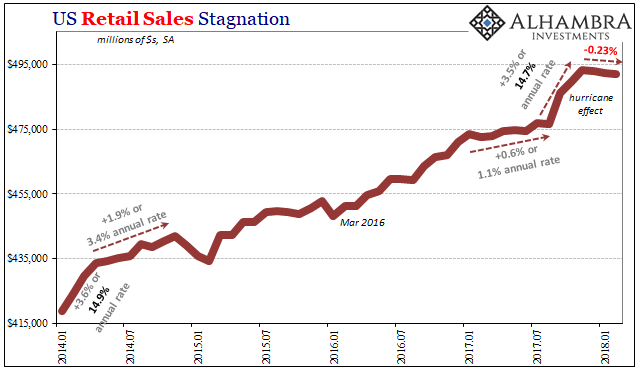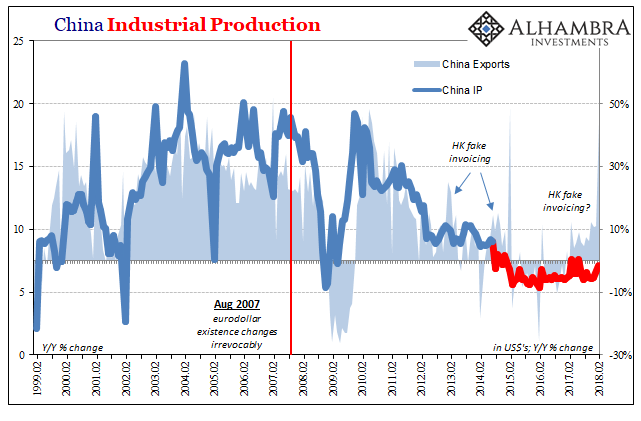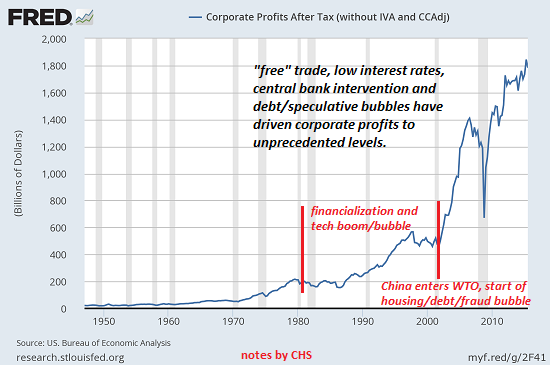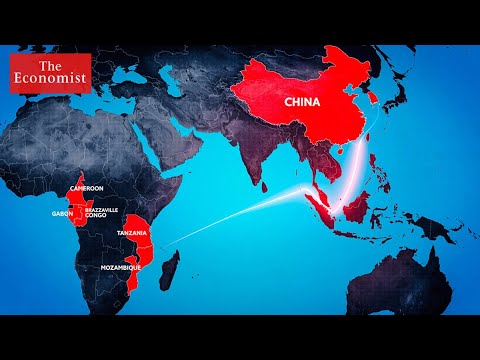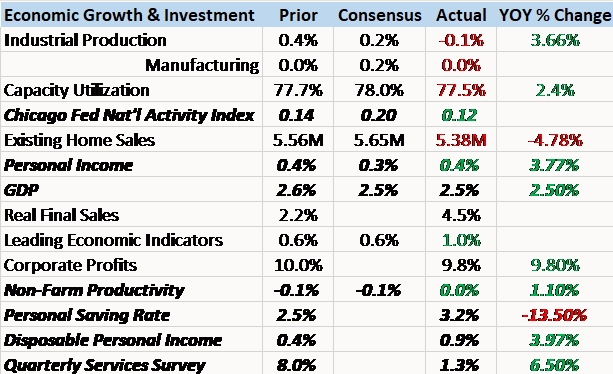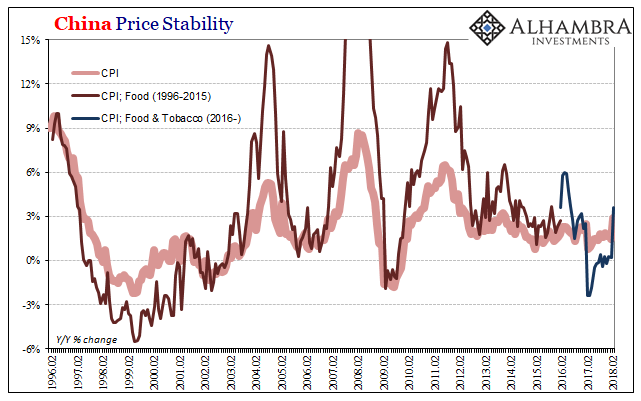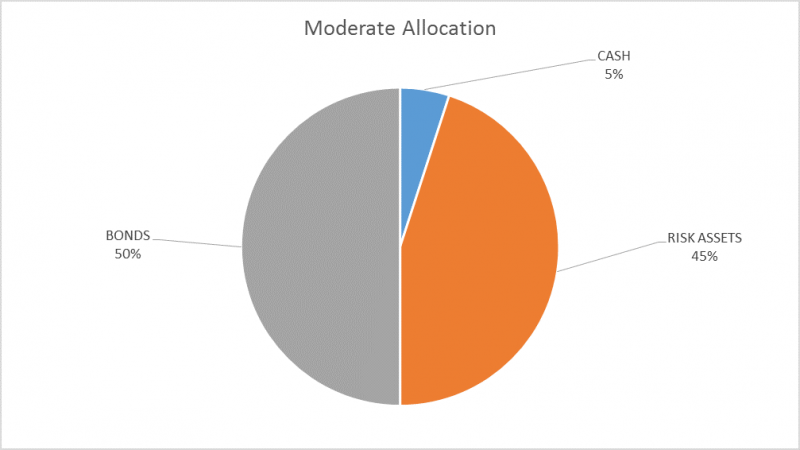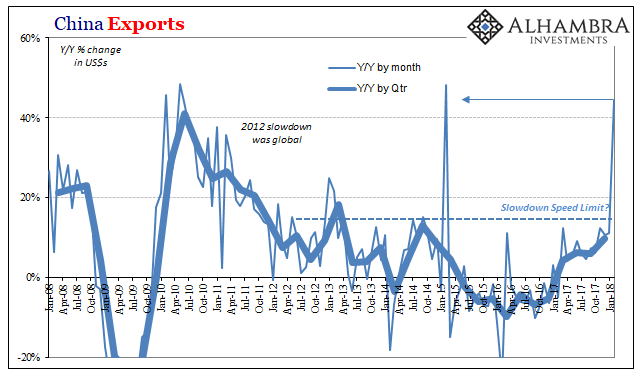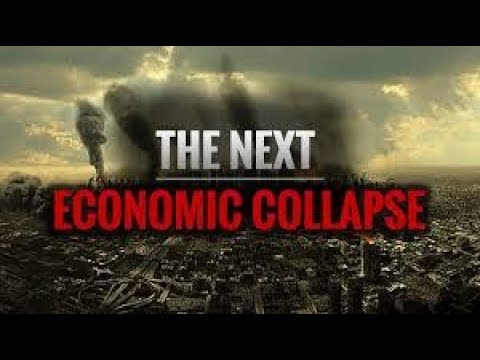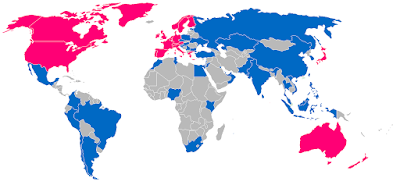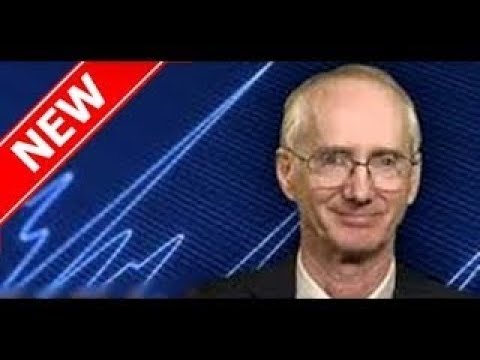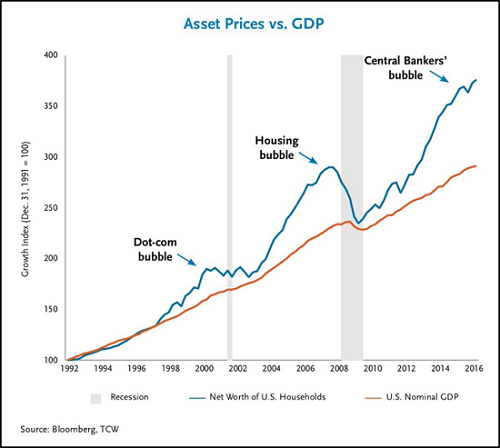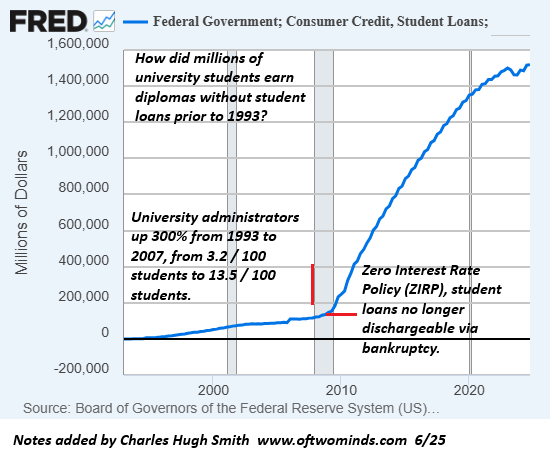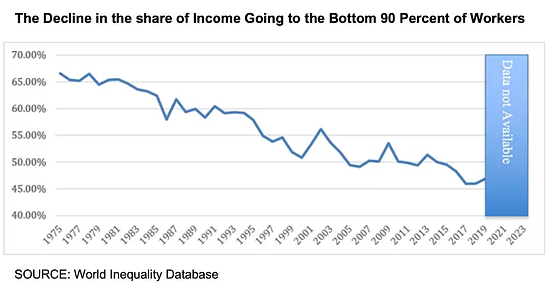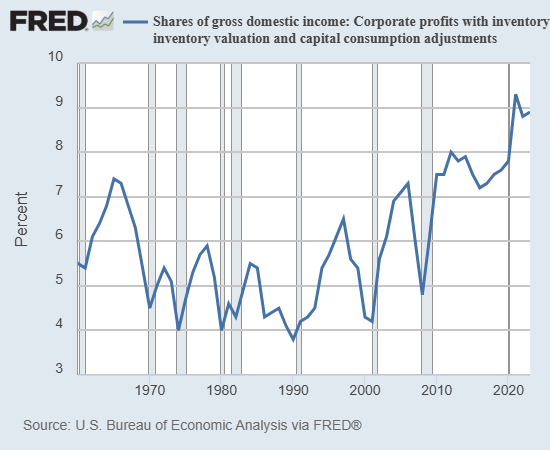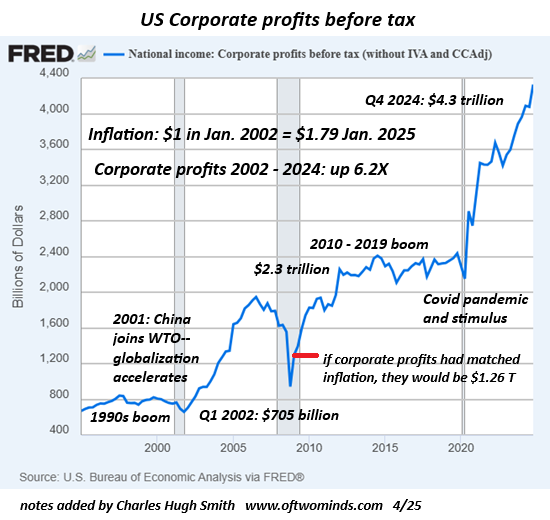Category Archive: 5) Global Macro

Three Months Now of After-Harvey Retail Sales; or, The Boom Narrative Goes Boom
If indeed this inflation hysteria has passed, its peak was surely late January. Even the stock market liquidations that showed up at that time were classified under that narrative. The economy was so good, it was bad; the Fed would be forced by rapid economic acceleration to speed themselves up before that acceleration got out of hand in uncontrolled consumer price gains. On February 1, the Atlanta Fed’s GDPNow tracking model was moved up to...
Read More »
Read More »
Rex Tillerson, “You’re fired!”, Cartooned | The Economist
After Rex Tillerson’s firing, our cartoonist KAL imagines how President Donald Trump might make foreign-policy decisions. Click here to subscribe to The Economist on YouTube: http://econ.st/2GBpCOs Daily Watch: mind-stretching short films throughout the working week. For more from Economist Films visit: http://econ.st/2GDXPxf Check out The Economist’s full video catalogue: http://econ.st/20IehQk Like The Economist on Facebook: …...
Read More »
Read More »
China’s Questionable Start to 2018
The Chinese government reported estimates for Industrial Production, Retail Sales, and Fixed Asset Investment (FAI) for both January and February 2018. The National Bureau of Statistics prepares and calculates China’s major economic statistics in this manner at the beginning of each year due to the difficulties created by calendar effects (New Year Golden Week).
Read More »
Read More »
Les banques centrales financées par les banques commerciales
Vincent Held continue à présenter des extraits dans cette 3ème et dernière vidéo. Les 3 vidéos se trouvent sur le site de Planètes 360. Cette vidéo fait suite à celle sur le marché REPO.
Read More »
Read More »
There is No “Free Trade”–There Is Only the Darwinian Game of Trade
Rising income and wealth inequality is causally linked to globalization and the expansion of Darwinian trade and capital flows. Stripped of lofty-sounding abstractions such as comparative advantage, trade boils down to four Darwinian goals: 1. Find foreign markets to absorb excess production, i.e. where excess production can be dumped. 2. Extract foreign resources at low prices. 3. Deny geopolitical rivals access to these resources.
Read More »
Read More »
Illegal ivory: where does it come from, where does it go? | The Economist
The illegal ivory trade is big business. A single shipment can be worth up to $1.3m. The vast majority of ivory poached in Africa ends up in China. Click here to subscribe to The Economist on YouTube: http://econ.st/2GrYOQX Elephant poaching is most prolific in two areas of Africa, the savannas of Mozambique and Tanzania, in …
Read More »
Read More »
Bi-Weekly Economic Review: The New Normal Continues
There has been a lot of talk about the economic impact of the recent tax reform. All of it, including the analyses that include lots of fancy math, amounts to nothing more than speculation, usually informed by little more than the political bias of the analyst. I am guilty of that too to some degree but I don’t let my personal political views dictate how I view the economy for purposes of investing.
Read More »
Read More »
China Prices Include Lots of Base Effect, Still Undershoots
By far, the easiest to answer for today’s inflation/boom trifecta is China’s CPI. At 2.9% in February 2018, that’s the closest it has come to the government’s definition of price stability (3%) since October 2013. That, in the mainstream, demands the description “hot” if not “sizzling” even though it still undershoots. The primary reason behind the seeming acceleration was a more intense move in food prices.
Read More »
Read More »
Global Asset Allocation Update: Tariffs Don’t Warrant A Change…Yet
There is no change to the risk budget this month. For the moderate risk investor the allocation to bonds is 50%, risk assets 45% and cash 5%. We have had continued volatility since the last update but the market action so far is pretty mundane. The initial selloff halted at the 200 day moving average and the rebound carried to just over the 50 day moving average.
Read More »
Read More »
Emerging Markets: Preview Week Ahead
EM FX ended Friday on a firm note and capped off a mostly firmer week. MXN, KRW, and ZAR were the best performers last week, while CLP, CZK, and PLN were the worst. US jobs data was mixed, with markets focusing on weak average hourly earnings rather than on the strong NFP number. Still, the data did nothing to change market expectations for a 25 bp by the FOMC this month.
Read More »
Read More »
China Exports: Trump Tariffs, Booming Growth, or Tainted Trade?
China’s General Administration of Customs reported that Chinese exports to all other countries were in February 2018 an incredible 44.5% more than they were in February 2017. Such a massive growth rate coming now has served to intensify the economic boom narrative.
Read More »
Read More »
Forget “Free Trade”–It’s All About Capital Flows
Defenders and critics of "free trade" and globalization tend to present the issue as either/or: it's inherently good or bad. In the real world, it's not that simple. The confusion starts with defining free trade (and by extension, globalization).
Read More »
Read More »
CHARLES HUGH SMITH – Has The Date Been Set For The Great Economic Collapse
Economic collapse and financial crisis is rising any moment. Getting informed about collapse and crisis may earn you, or prevent to lose money. SUBSCRIBE FINANCIAL GUIDE for Latest on Financial News,Gold News,Silver News, Stock Market News,Bitcoin News,Political News,Oil News,Economic News,Economic Collapse News ..
Read More »
Read More »
Emerging Markets: What Changed
Indonesia will freeze prices for electricity, gasoline, and diesel fuel until next year. US President Trump and North Korean President Kim Jong Un will hold a summit meeting this spring. National Bank of Poland has tilted even more dovish. Moody’s downgraded Turkey a notch to Ba2 with a stable outlook. Saudi Arabian Energy Minister hinted that the Aramco IPO could be delayed until 2019. Tanzania finally obtained a sovereign rating after years of...
Read More »
Read More »
March 24, 2018 ! Charles Hugh Smith Has The Date Been Set For The Great Economic Collapse
Please Subscribe to my NEW Channel! Thank You. March 24, 2018 ! Charles Hugh Smith Has The Date Been Set For The Great Economic Collapse. Financial writer Charles Hugh Smith sees one very big problem coming at us, and that is a dramatic loss in buying power of the U.S. dollar, but it’s not just …
Read More »
Read More »
How powerful is your passport? | The Economist
Passports can tell you a lot about a country. Colour can be a statement of national identity, state religion, or international co-operation. But not all passports are equal. Click here to subscribe to The Economist on YouTube: http://econ.st/2Gbhx2T Daily Watch: mind-stretching short films throughout the working week. For more from Economist Films visit: http://econ.st/2GeS3C1 Check …
Read More »
Read More »
The Death of Buy and Hold: We’re All Traders Now
The percentage of household assets invested in stocks fell from almost 40% in 1969 to a mere 13% in 1982, after thirteen years of grinding losses. The conventional wisdom of financial advisors--to save money and invest it in stocks and bonds "for the long haul"--a "buy and hold" strategy that has functioned as the default setting of financial planning for the past 60 years--may well be disastrously wrong for the next decade.
Read More »
Read More »
Jeffrey Snider: Since 2008 major turning points in Gold have been punctuated by Eurodollar anomalies
Erik Townsend and Patrick Ceresna welcome Jeffrey Snider to MacroVoices. Erik and Jeffrey discuss gold swaps, how central banks engage in them and what has changed in gold swap markets today. They further investigate the gold bug’s conspiracy theory about “gold pukes” and what happened to gold in the 2008 crisis. They finally touch on …
Read More »
Read More »
Is the pope head of the world’s most powerful government? | The Economist
Is the pope head of the world’s most powerful government? The pope represents over one billion people, his government has a permanent presence at the United Nations and he runs the oldest diplomatic service on earth. We asked the man behind the Vatican’s foreign policy to explain how the world’s smallest country could house the …
Read More »
Read More »









